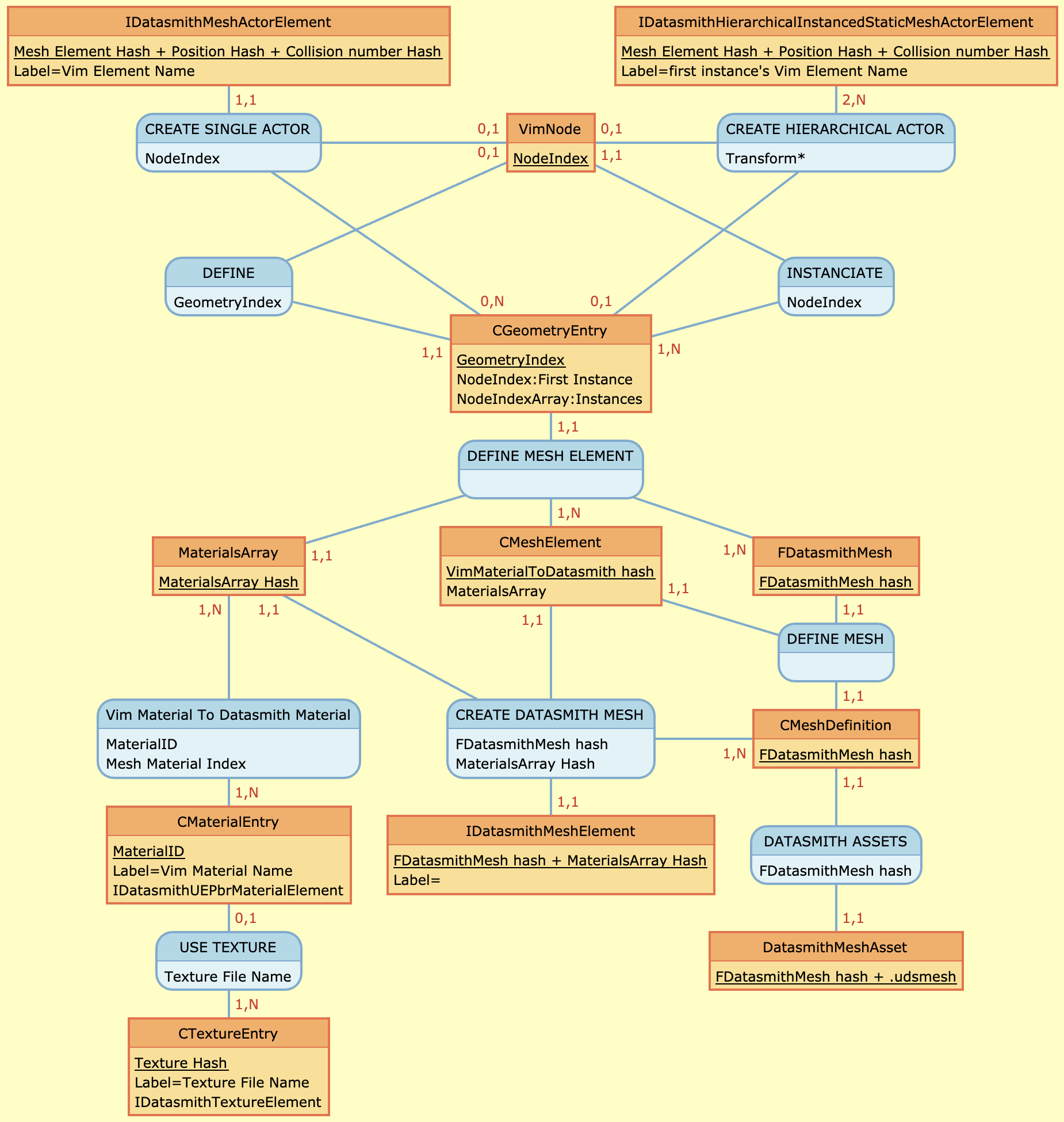A VIM to DataSmith converter.
- You must build the Datasmith SDK
- With Git
- For that you need to get Unreal Engine git repository. Branch 4.27
- For mac OS : Replace the files with the ones provided vim-datasmith/Settings folder.
- "Engine/Source/Programs/Enterprise/Datasmith/DatasmithSDK/DatasmithSDK.Target.cs"
- "Engine/Source/Programs/Enterprise/Datasmith/DatasmithSDK/DatasmithSDK.Build.cs"
- Run "Setup.command"
- Run GenerateProjectFiles.command
- Open the UE4 project and build scheme "DatasmithSDK"
- With Perforce
- Just use the force (a lots) and everything will goes well.
- In the file
- In Vim-Datasmith.xcconfig - Edit "DatasmithSDKFolder" for the real path of your builded SDK
- At this point you are ready to build the converter application.
- With Git
Good Luck
Richard Young
The current version is the basis of the final product, it lacks:
-
Geometry:
- UV coordinate processing
- Determine pivot (i.e. not 0, 0, 0) for objects without transformations
-
Materials:
- A flag to use or not the textures.
- Refine the material settings.
-
Naming:
- The converter use hashing to name Datasmith elements (Actor, Mesh, Metadata, Textures...)
- Until VIM defines GUIDs for its elements, this approach will minimize reimports in Datasmith importers.
Here is a simplified entity relationships diagram. The goal is to allow a quick visualization of the chosen approach to convert between the vim elements and those of Datasmith.
This diagram have been done with: MoCoDo online. Paste it text from file: Documentation/VimToDatasmithMCD.txt
In VIM, almost all data is referred by index. In order to improve the readability of the code and reduce the errors that could result from it, I typed all these indexes and created encapsulations (see TVector template) for their containers
// Here are all VIM index. Use of enum to get some type checking
enum ElementIndex : uint32_t { kNoElement = (uint32_t)-1 };
enum NodeIndex : uint32_t { kNoNode = (uint32_t)-1 };
enum GeometryIndex : uint32_t { kNoGeometry = (uint32_t)-1 };
enum ParentIndex : uint32_t { kNoParent = (uint32_t)-1 };
enum VertexIndex : uint32_t { kInvalidVertex = (uint32_t)-1 };
enum GroupIndex : uint32_t { kInvalidGroup = (uint32_t)-1 };
enum MaterialId : uint32_t { kInvalidMaterial = (uint32_t)-1 };
enum IndiceIndex : uint32_t { kInvalidIndice = (uint32_t)-1 };
enum FaceIndex : uint32_t { kInvalidFace = (uint32_t)-1 }; // FaceIndex is same as Indices index / 3
enum StringIndex : uint32_t { kInvalidString = (uint32_t)-1 };
// Basic vector class
template <class C, class Indexor = std::size_t> class TVector {
...
};
DebugTools provide services to do all invariants tests (this code use a lots of them) and to do reports.
TimeStat permit to measure CPU and realtime taken for a code to execute. Note that CPU can be between ]0..CPUcount] * realtime. (Ex. 1 - On a 20 CPU machine, you can execute up 20 CPU seconds in 1 real seconds) (Ex. 2 - Can be less than one if process is waiting for ressources (disk access))
TaskMgr create a CPU count threads pool. - You can add task and join all of them when needed. - You can also use CTaskJointer and add it joinable task or functor task.
DatasmithHashTool and DatasmithSceneValidator are tool extracted from UnrealEngine/Engine/Source/Programs/Enterprise/Datasmith/DatasmithARCHICADExporter. They got some adjustment to compile in VimToDatasmith.
